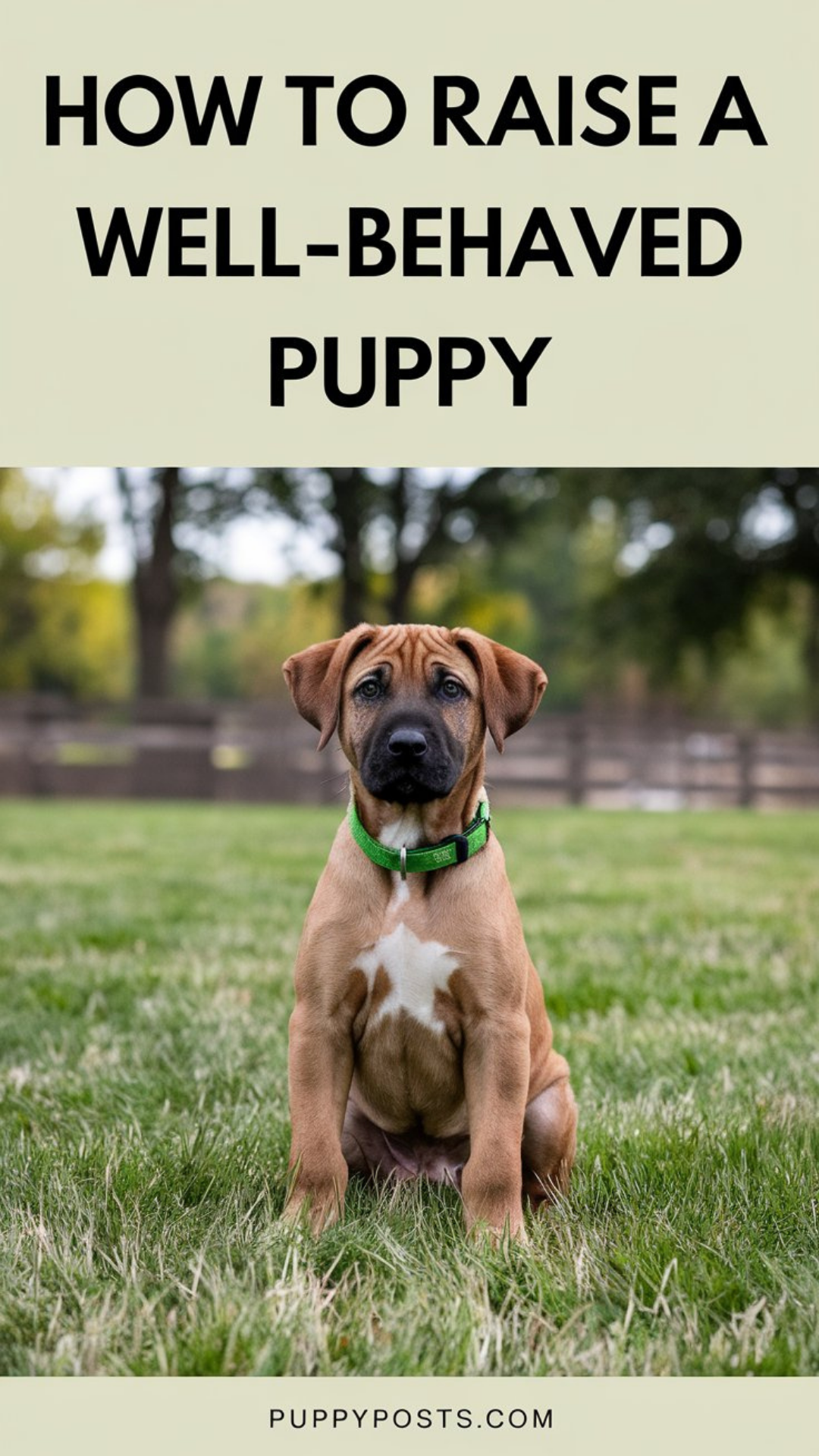How to raise a well-behaved puppy
Look, raising a well-behaved puppy ain’t a walk in the park. I’m a veterinarian with over ten years’ experience, running a sanctuary for stray dogs and cats. I’ve seen puppies that turn into great dogs—and others that become a headache. The difference? How you raise ‘em. If you want a pup that listens, respects boundaries, and behaves well, you gotta put in the work right from day one. No shortcuts. Here’s the straight talk on raising a well-behaved puppy.

Set Clear Rules and Boundaries Early
Right when your puppy walks through that door, lay down the law. No jumping on furniture, no biting, no chewing what’s off-limits. Puppies test limits—that’s normal—but if you don’t enforce rules consistently, you’re setting yourself up for trouble. Be firm and consistent, and don’t let them get away with bad behavior.
Start Socialization ASAP
A well-behaved puppy is a confident puppy. Expose your pup to different people, animals, sounds, and environments early and often. Positive experiences build confidence and reduce fear-based behavior later. Don’t wait around—get out there and socialize safely.
Teach Basic Commands Right Away
Sit, stay, come—these aren’t just party tricks; they’re foundations for good behavior. Start training early with short, positive sessions. Use treats and praise. Be patient but consistent. When your puppy learns to listen, managing them becomes way easier.
Use Positive Reinforcement, Not Punishment
Forget yelling or harsh punishments—they backfire and damage your bond. Reward good behavior with treats, praise, and affection. Positive reinforcement creates a willing learner and a trusting relationship.
Crate Train and Use Structure
A crate isn’t a punishment; it’s a safe space and training tool. Crate training helps with potty training, prevents destructive behavior, and gives your puppy a place to relax. Structure gives puppies security and teaches self-control.
Handle Your Puppy Regularly
Get your pup used to being touched—ears, paws, mouth—so vet visits and grooming go smoothly. Puppies who accept handling grow into cooperative adult dogs.
Be Patient and Consistent Every Day
Puppies don’t learn overnight. They need repetition, patience, and calm leadership. Don’t lose your cool when things get frustrating. Your calm confidence helps your puppy feel secure and eager to learn.
Raising a well-behaved puppy takes time, effort, and consistency. Get the basics right, lead with calm confidence, and invest in early training and socialization. Your hard work pays off with a loyal, obedient dog who’s a pleasure to live with.







